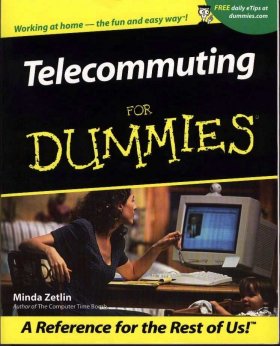|
Feng Shui: Smart Business or Superstition?
By Minda Zetlin
A five-star hotel in Shanghai was doing very poorly: Occupancy was down to 5 percent. With investors ready to pull out, management called in Sung
Siu-Kwong, one of Hong Kong's most prominent feng shui consultants. Feng shui (pronounced FUNG
SHWAY) is a centuries-old belief system about how the placement of anything--from a skyscraper to a potted plant--can bring either good or bad fortune.
The building was at the end of a very long street--"like a river rushing toward the hotel"--very bad feng
shui, Sung explains. To combat this, he had them change the color of the roof, put a reflective material over the main entrance and realign the flagpoles outside so as to put them at an angle to the street, instead of parallel. All of this, he says, "diversified" the energy flow.
"I also asked them to put a fountain in front of the hotel and put nine dragons inside the fountain," he says. "Nine turtles, too. And I asked them to put a pair of lions in the front garden." The hotel's occupancy is now up to 80 percent.
Coincidence? Of course, the recent business boom in China has helped, feng shui or no.
The principles underlying feng shui are long-standing ones. "The world is full of 'chi,' which in this case means force," explains Tunney Lee, professor of architecture at the Chinese University of Hong Kong. "They are in the earth and in the heavens and they are impersonal. What you have to do is keep the bad forces away and bring in the good forces. Feng Shui is designed to do that." This concept of chi is also the basis for Chinese herbal medicine and acupuncture, both of which have gained international acceptance as effective treatments.
And there's another, even older principle involved: common sense. It's actually quite disturbing to have a road aimed right at your house when you open your door," Lee notes. "Common sense says you don't want to do that."
Whether or not you believe feng shui has any validity, one thing is certain: Many Chinese people do. This is one reason that such established Western businesses as Citibank have called in feng shui practitioners. If you hope to work with Chinese people as partners, customers or even employees, you ignore feng shui at your peril. (The same goes for Chinese astrology, which dictates, for instance, which days are particularly good or bad for signing a deal.)
"A few years ago, you couldn't get Chinese workmen to dig a tunnel because they would be digging into the veins of the dragon, or into the chi," Lee says. "The first railroad in China was destroyed because it went in a straight line and the people who lived around it were convinced it was bringing bad chi into their neighborhood. People would abandon villages because of bad feng
shui."
These days, he says, this effect has lessened. But the influence is still there. "Have you ever noticed that almost every Chinese restaurant has a mirrored wall, a screen, an aquarium, a potted plant--or all of the above?" asks Lillian
Lesefko, a feng shui practitioner and teacher. "That's because of feng
shui. Most people of Asian descent know about it and follow it, even if they don't believe in it."
"Basically, nothing is touched without a feng shui man coming in and saying you have to put a plant here and a glass of water there," gripes John
Hetherington, manager of the Hong Kong research department of Asia Equity. But, he says, if his company redecorated without using a feng shui consultant, "I think a lot of people would feel uncomfortable, especially our Hong Kong Chinese staff."
And people in Hong Kong know all about feng shui discomfort. In the late 1980s, the Bank of China commissioned
I.M. Pei to build its Hong Kong headquarters. The triangular structure he designed was a feng shui nightmare.
"Feng shui in buildings tends to avoid sharp angles," Lee explains. "One reason is a sharp edge sort of focuses bad energy and aims it at a specific spot." However, modern architecture often has a lot of sharp edges.
I.M. Pei is known to be a feng shui skeptic, and the Socialist Chinese government has no use for this "superstition." So neither thought it mattered that the 70-story structure they built had very sharp angles.
But that's not how most Hong Kong residents saw it. "If you look at where those sharp edges aim, it's believed they really caused some problems," Lee says. One aims at the Lippo
Centre, formerly called the Bond Centre. Formerly, because Alan Bond, the Australian tycoon who built it, went broke--presumably a victim of the bad feng shui of the Bank of China building. Another sharp angle aims at Hong Kong's Legislative Council, which has been having difficult negotiations with China. A third aims at the governor's mansion. "I've seen photographs that show this knife edge is aimed right at his desk," Lee says.
To deflect this negative energy, a previous governor actually had trees planted outside the mansion, apparently to no avail. For, as Sung points out, no Hong Kong governor has had good luck since the Bank of China building was built.
As for Lee, he says he puts little faith in feng shui, in part because cases of negative feng shui are often identified only after something bad has already happened. "We had a case where two librarians died in the same office, and everyone was convinced that the problem was a sculpture directing negative chi into the window," he says.
"That's after the fact. If someone had said while they were putting the sculpture up, 'Hey, don't do that, it's going to kill the librarian!' then I'd have something to think about." In the meantime, he says, "I'm very practical. If three people get sick in the same office, I say, check the air conditioner."
|




